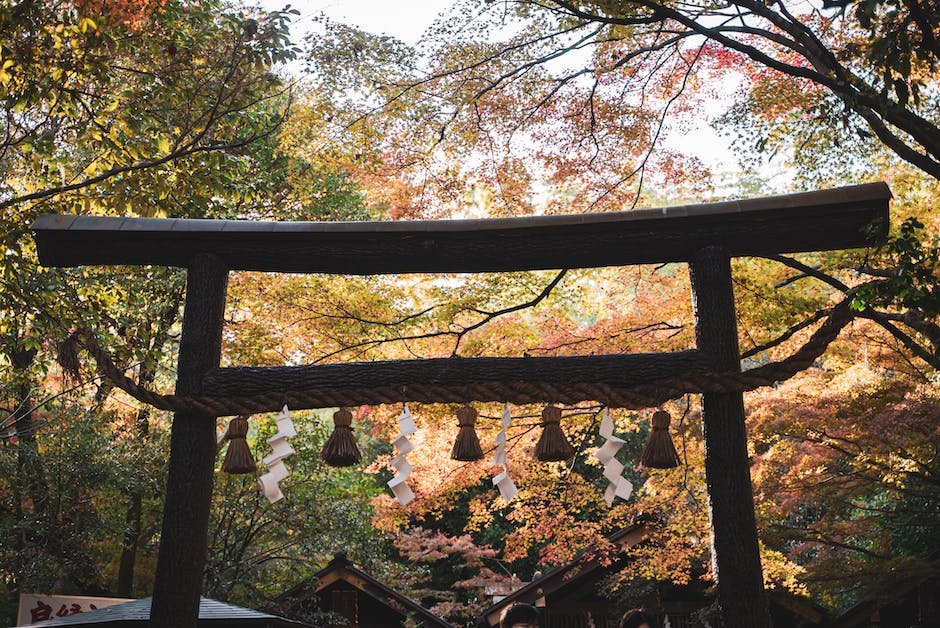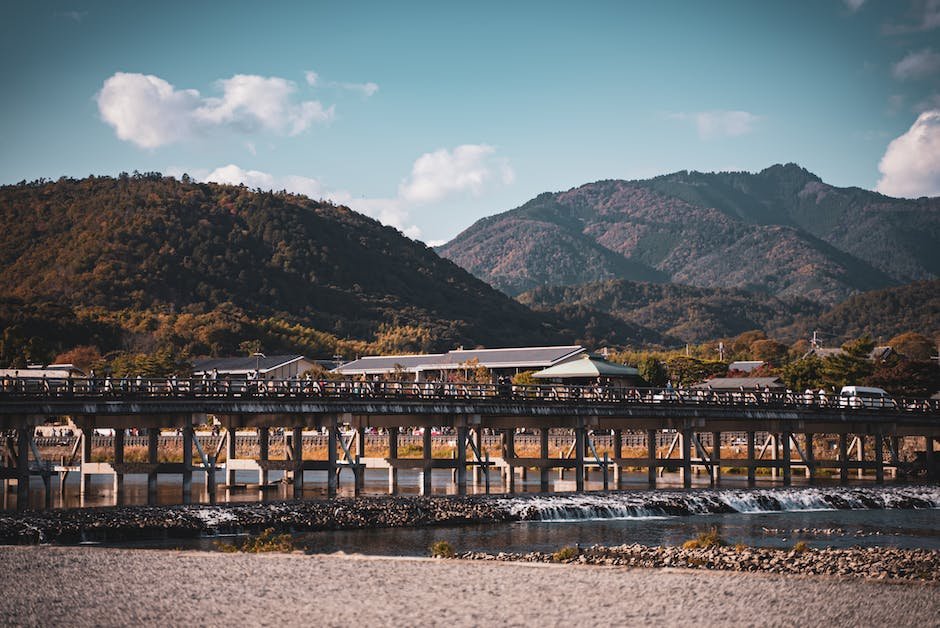Japan is a country that is rich in culture and history. It is also a country that is very safe to travel to. If you are thinking about backpacking in Japan, here are some things to keep in mind.
First, Japan is a very expensive country to travel to. If you want to save money, you should consider staying in hostels or guesthouses instead of hotels. You should also look for restaurants that serve cheap meals, such as ramen noodles.
Second, Japan is a country with a lot of rules and regulations. You should be sure to obey all of the rules, such as no smoking in public places and no littering.
Third, Japan is a country that is known for its polite and helpful people. If you are ever lost or need help, be sure to ask a local for assistance.
following these tips will help you have a safe and enjoyable trip to Japan.
1. Do your research
Before you leave for your trip, it is important to do your research and plan ahead. This includes learning about the country and its customs, as well as figuring out what kind of backpack and gear you will need. Japan is a very safe country, but it is always a good idea to be prepared.
2. Pack light
One of the most important things to remember when backpacking is to pack light. This will make it much easier to move around and will save you money on transportation. Remember that you can always buy things you need while you are in Japan.
3. Stay in budget accommodation
There are many affordable accommodation options in Japan, so you don’t need to spend a lot of money to have a comfortable place to stay. Hostels, guesthouses, and capsule hotels are all good choices.
4. Use public transportation
Japan has an excellent public transportation system, so make use of it! This will save you money and time, and it is also a great way to see the country.
5. Eat local food
One of the best ways to enjoy Japan is to eat the delicious local food! Japanese cuisine is healthy and delicious, so
How much money do you need to backpack Japan?
If you’re backpacking Japan, plan to budget between 7,000 JPY per day. This assumes you’re staying in a hostel dorm, cooking some of your meals, eating at the cheap 100 yen shops, visiting free museums and temples, and using public transportation to get around.
Assuming you are staying in Japan for two weeks, the estimated cost for two people is ¥28,300 ($195) per person per day. This cost includes flights, accommodation, transportation, food, activities, souvenirs, and other small expenses. Therefore, the total cost for two people for two weeks in Japan would be ¥790,000 ($5450).
How much money is enough for a trip to Japan
The average daily budget for a single traveler in Japan is 3,500 to 7,800 yen, while the average daily budget for two travelers is 7,000 to 15,600 yen. For those on a low budget, spending 8,800 to 18,500 yen per day is considered medium budget, and anything over 18,500 yen is considered high budget.
The main challenge in Japan is trying not to spend too much money; it’s not a cheap country to travel in. I managed to spend an average of $30 a day over a three-week trip; I doubt it could be done for less, but there are a few travel hacks to backpack Japan on a budget and experience the country cheaply.
Is 2 weeks in Japan too long?
I couldn’t agree more! Two weeks is the perfect amount of time to explore Japan. You’ll be able to experience everything this amazing country has to offer, from the bustling city streets to the tranquil temples and everything in between. And of course, you’ll be able to indulge in all the delicious food Japan has to offer!
There are so many different cities, activities, and attractions in Japan that 14 days is a great amount of time to spend exploring it all! This Japan itinerary will take you to several different cities throughout the country – both major ones like Tokyo and smaller ones like Takayama. You’ll be able to experience a wide variety of things to do and see, and hopefully come away with a better understanding and appreciation for Japanese culture.
Is 500 yen a lot of money in Japan?
A 500 yen coin is the largest and most valuable of the yen coins. It can be used to buy a simple lunch such as a bento box.
If you want to experience Japan at its most vibrant, the best time to visit is during spring (March to May) or fall (September to November). This is when the cherry blossoms are in bloom or the leaves are changing color, creating a beautiful contrast against the scenery. However, it’s important to keep in mind that this is also the peak tourist season, so it can be quite crowded.
Is Japan expensive for tourists
Yes, Japan can be expensive, but the cost of travelling within the country is relative. Before getting there, there is a lot to decide about where you will go, whether to purchase the rail pass and what kinds of accommodation you want to try out, from standard budget hostels to traditional Japanese experiences.
When travelling to Japan, be sure to have your passport and travel insurance in order. It is also a good idea to familiarize yourself with some basic Japanese phrases, as this will make your trip much more enjoyable. And finally, be sure to buy tickets to popular activities in advance, as this will save you time and money.
Is 2000 dollars enough for Japan?
You can live quite comfortably in Japan on 2000 dollars per month, especially if you live in a smaller city where living costs are lower. As long as you have access to a train station and are not in the middle of nowhere, you should be fine.
If you want to see the beauty of Japan on a budget, the winter months of December through February will be your best bet. Though Japan is no less scenic during the winter season, you can avoid the popular tourist waves of spring and fall by traveling during the cold.
Can I use credit cards in Japan
Credit, debit and prepaid cards of international brands are generally accepted throughout the country. There will be instances where stores may not display the symbols of the cards they accept, so ask the salesperson if you can use your card.
If you’re looking to travel to Japan on a budget, it’s important to consider the cost of your accommodation, transportation, and activities. While the cost of living in Japan is relatively high, there are ways to save money by planning ahead and being mindful of your spending. A good rule of thumb is to budget at least $100 USD (¥10,000) per day, which should cover the cost of your accommodation, food, and activities. Keep in mind that this is a minimum cost and does not include the price of your flights to and from Japan.
Can I wear shorts in Japan?
It’s perfectly acceptable to wear shorts in Tokyo during the summertime. In fact, most summer attire is perfectly fine to wear on the city streets. Just be aware that you might stand out a bit among all the businesspeople who are dressed more professionally.
If you’re planning a trip to Japan, you can expect to pay a pretty penny. The average price for a 7-day trip is $1,659 for a solo traveler, $2,690 for a couple, and $1,913 for a family of 4. When it comes to lodging, hotels in Japan range from $62 to $304 per night, with an average of $105. However, vacation rentals will typically cost you a bit more, typically falling in the $140 to $520 per night range for the entire home. So, if you’re looking to save some money on your accommodations, you may want to consider staying in a vacation rental rather than a hotel.
Is 10 days enough in Japan
Japan is an amazing country with so much to see and do. 10 days is enough to get a taste of what Japan has to offer, but if you have a few extra days, or even two weeks, you could easily explore more of this amazing country. From the bustling streets of Tokyo to the tranquil beauty of the Japanese countryside, Japan has something for everyone.
If you’re planning a trip to Japan, chances are you’ll want to visit both Tokyo and Kyoto. These two cities are some of the most popular tourist destinations in the country, and they’re connected by the Tokaido Shinkansen, which has become known as the “Golden Route.” This route stretches along the densely urbanized Pacific coast, making it easy to get between Tokyo and Kyoto.
Final Thoughts
1. Do your research before you go. Make sure to know the basics about backpacking in Japan, such as what kind of gear you need and where you can find campsites.
2. Start small. Don’t try to backpack across the entire country on your first trip. Stick to a smaller region or even just one prefecture.
3. Pack light. You don’t need to bring everything with you when you go backpacking. Choose versatile clothing that can be layered, and only bring the essentials.
4. Be prepared for the weather. Japan’s climate can vary greatly depending on the region you’re in. Make sure you know what kind of weather to expect and pack accordingly.
5. Bring a map. Japan is a large country, and it can be easy to get lost. Bring a map with you, and make sure to mark your campsites and hiking trails.
6. Be respectful of the environment. When you’re backpacking in Japan, be sure to Leave No Trace. Pack out all of your trash, and stick to established trails.
7. Be mindful of your safety. Japan is generally a safe country, but there are still some risks
1. Adjust your expectations. Japan is an expensive country, so be prepared to spend a lot of money on your trip.
2. Learn some basic Japanese words and phrases. This will help you get around and make your trip more enjoyable.
3. Pack light. You’ll be doing a lot of walking, so you don’t want to be weighed down by too much luggage.
4. Plan your routes in advance. This will help you make the most of your time and see all the sights that you want to see.
5. Be prepared for crowds. Japan is a very densely populated country, so you’ll often be surrounded by people.
6. Have an amazing time! Japan is a truly unique and wonderful place, so make sure to enjoy every minute of your trip.

